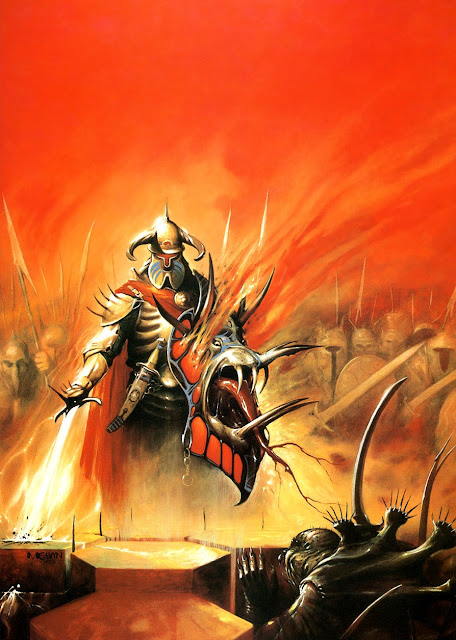Back in May Daniel Jose Ruiz wrote an article for The Millions titled, Dragons Are for White Kids with Money: On the Friction of Geekdom and Race, in which he tied being a geek to being white and then attempted to illustrate how difficult it is to be non-white in the larger geek culture. It's a fairly interesting read though I disagree with many of his suppositions that he attempts to establish as facts of the culture and hobby.
There are two passages in particular that I find myself disagreeing with as I find Ruiz conflating a racial bias with a situation wherein people have no interest discussing the subject at the gaming table. In the first he wrote: ". . . I can run a D&D campaign about how poorly certain races like half-elves are treated, and my group will rail against the injustice of it all, but if I bring up any real-world situation of inequality, I get the cold shoulder at best or at worst booed down and given “focus on the game” lectures. As Junot Díaz allegedly said: “Motherfuckers will read a book that’s 1/3 in Elvish, but put in two lines of Spanish and [white people] think we’re taking over.” . . ." (Ruiz).
In the example that Ruiz provides the problem is not one where his players refuse to explore racial injustice in their games as they openly discuss and become motivated to work against the injustice that half-elves experience but rather one in which they don't want to have real world situations brought into their games. I completely understand their reticence to have real world events intruding on their game's escapism - which is precisely what Dungeons & Dragons is for many of us: escapism. When Ruiz forces them to confront situations going on in the real world he's intruding on a game that allows them to get away from all of that for a few hours. He's violating the social contract of the game where we get together and escape from the real world to loot the dragon, kill the girl, and save the treasure.
Ruiz went on to write: ". . . But growing up around my more working-class family, I was teased for reading, and I was especially teased for reading books like Redwall or Lord of the Rings. That fantasy crap was for losers, gueros, and jotos. Some of my family even thought that Dungeons & Dragons was a gateway to Satanism and possession . . ." (Ruiz). The supposition here is that this was a unique thing to happen to him because of his race. It is not. Lots of people are teased, called names, and have their sexuality questioned because of the things they like that others do not. It is unfortunately a part of growing up and a side of things that I worry about constantly as my son quickly approaches school age.
I don't know why it happens but people often attack others when they don't understand what they're doing. Read a big book and you're a nerd. Love the wrong thing and you're a faggot. Spend too much time doing something others don't understand and you'll find yourself ostracized and treated like you're somehow less valuable then they are.
People are shit.
And the worst thing about that is that you won't be able to get completely away from them as you get older either. You'll run into terrible people everywhere you go and there is no underlying reason that will explain away their awfulness. You can blame it on your race, your financial background, your social status, your political affiliation, the way you look and it won't matter one damned bit. They'll still be shit.
Works Cited
"Dragons Are for White Kids with Money: On the Friction of Geekdom and Race" The Millions, May 11, 2017, http://www.themillions.com/2017/05/dragons-are-for-white-kids-with-money-on-the-friction-of-geekdom-and-race.html. Accessed June 19, 2017.










